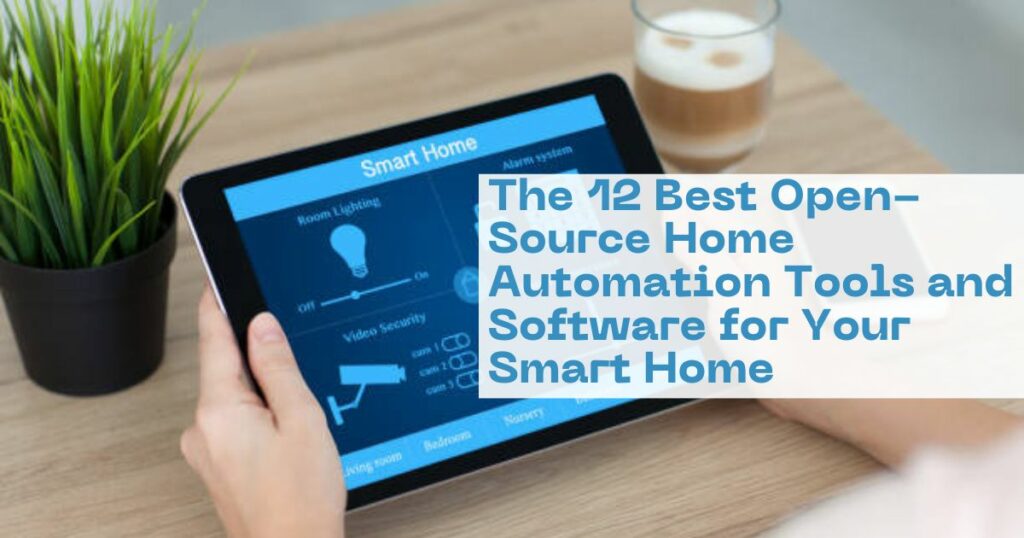This article gives a review of The 12 Best Open Source Home Automation Tools and Software for Your Smart Home.
With the ever-increasing number of gadgets available to help you coordinate your smart home, it is now easier than ever to try your hand at home automation.
Whether you plan to integrate a home thermostat, control your HVAC system from anywhere in the world, reduce energy usage, or protect your home from fire, theft, and other threats, there are plenty of smart gadgets at your disposal.
However, managing the security of connected smart devices remains a challenge. That is why most users prefer total control over who accesses the automation system that controls their devices.
Actually, one of the most important decisions when setting up an intelligent home is choosing the right platform.
It will determine what gadgets you can add to your smart home and how you use them. While some people prefer to go with big platforms such as Amazon Alexa, Google Home, and Apple HomeKit, there are plenty of open-source home automation solutions.
The good thing about open-source systems is that they are free, support a wide range of home automation open-source devices, and give you more control over how you use them.
So, if you wish to get the most out of your smart home setup, open-source home automation systems are an excellent choice.
To help you with this, we have listed the best open-source home automation tools and software you can add to your smart home.
1. OpenHAB
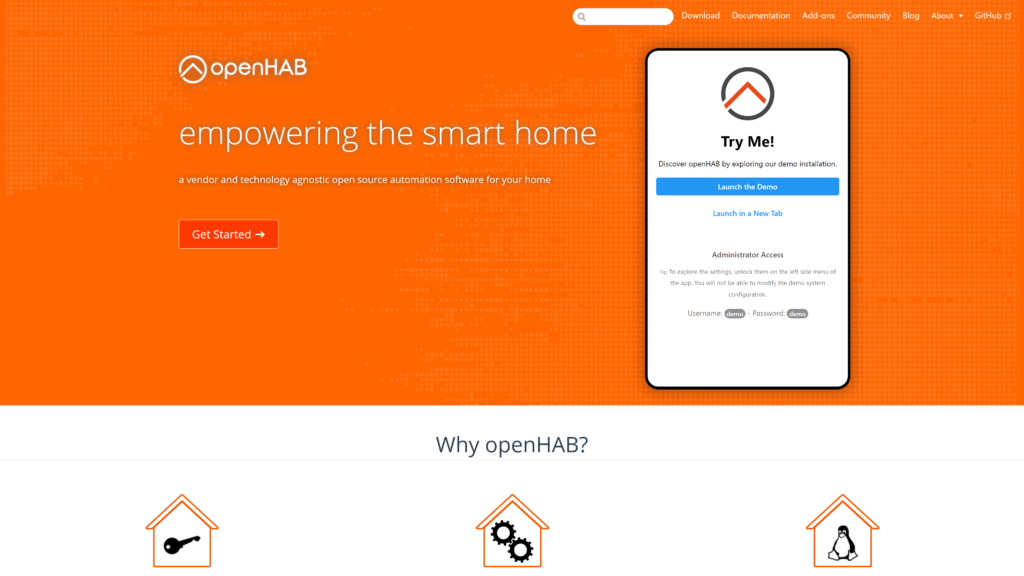
OpenHAB is also one of the most comprehensive home automation open-source software packages. We love it because it is a modular and flexible solution for a smart home hub.
To connect devices to this software program, you need plugins. Some of these plugins require a hub to connect through a wireless network like WAP.
The good thing about OpenHAB architecture is that it allows users to link with over 200 technologies. With this system, you can control your gadgets via event-based triggers, scripts, rules, or voice control.
Another impressive thing about this software is that it is compatible with top operating systems, including Linux, macOS, Windows, Android, Docker, iOS, and Rasperry Pi, among others.
Besides this, you can integrate it with Apple HomeKit, Google Assistant, and Alexa, and it can operate with or without the cloud.
For Raspberry Pi users, there is a ready-to-use OpenHABian image that comes with preset settings and software. You can also install OpenHAB on any Debian-based Linux derivative operating on Rasberry Pi.
2. Home Assistant
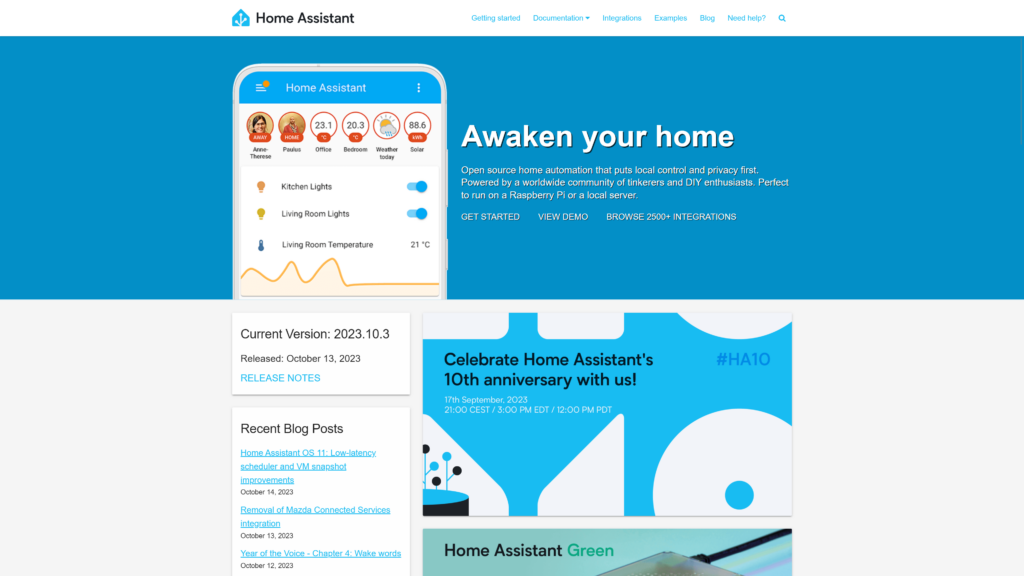
Home Assistant is one of the widely-used home automation open source software due to its versatility. This software can remotely control fans, video doorbells, lights, home security, and smart TVs, among other devices.
To be specific, there are over 2000 smart home devices that you can control using Home Assistant. The good thing is that you can install this software as a stand-alone container, on a local server as an operating system, or even on a Raspberry Pi.
To install it, use Python’s virtual environment or a supervisor application. Given that it installs on most platforms, such as Windows, macOS, Odroid, Linux, Asus Tinkerboard, Raspberry Pi, and NAS.
For more power, you can combine it with Node-Red. This way, you can control any smart device.
3. Calaos
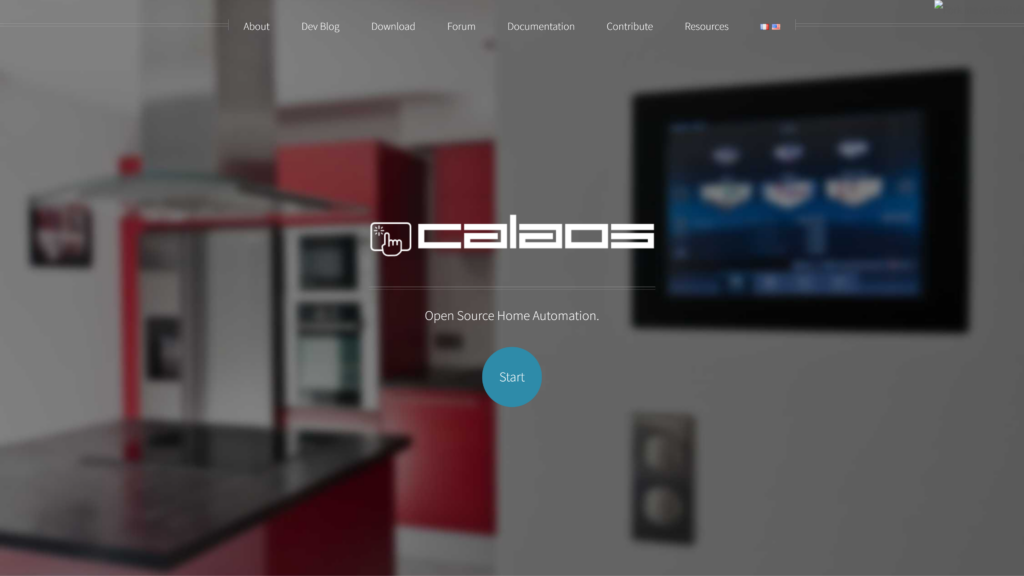
Calaos is an home automation open source program that installs on Raspberry Pi, Cubieboard2, Cubieboard, Mele2000, MSI WindBox, Mele 1000, Mele11000G, and any Intel-driven PC.
Mosat people love this tool because it is available in a wide variety of formats, including as a server application, touchscreen user interface, Android and iOS app, and web app.
You can also treat it as a Linux distribution that you can access through an HTML5 web app. In summary, Calaos allows you to control all major smart home devices with one click.
It is also easy to link it with OpenWeather Map, OpenKarotz, Echo devices, and IPX800.
4. Domoticz
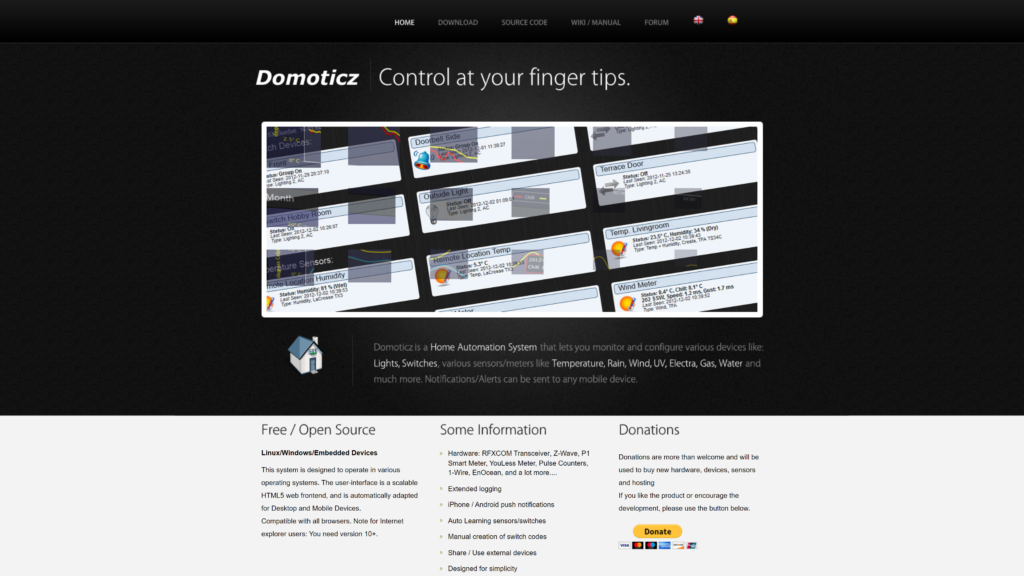
Domoticz is another home automation open-source software that works with top platforms like Windows, macOS, Synology, Docker, Raspberry Pi, Linux, and FreeNAS.
The software has a scalable HTML5 web frontend that you can access on any mobile or desktop device. Usually, the software interfaces are APIs, while the devices coordinated through Domoticz are ‘protocols’.
Another thing that you should note about Domoticz is that it works with a single cable. Besides this, all the gadgets connected to it rely on a single program.
Domoticz-controlled devices, or ‘protocols’, are also connected to the software via generic Python plugins or their own plugins.
Some common devices that you can control using Domoticz include ones for gardening, entertainment, security, and lighting.
5. OpenMotics
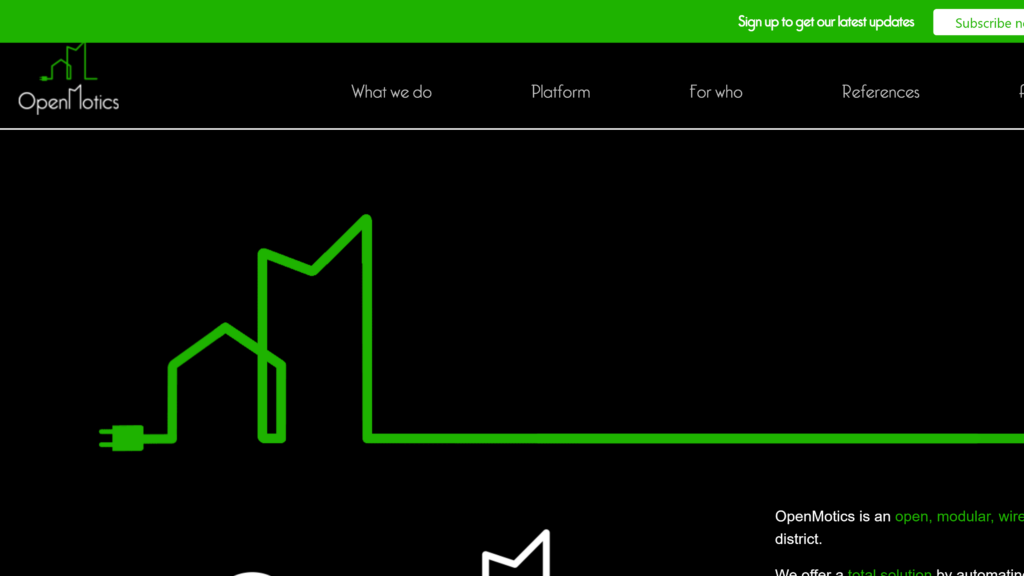
This software and hardware platform supports a wide range of smart modules for coordinating smart home devices.
To be precise, it supports over 5,700 smart modules. It is also important to note that it is wired, open, and modular. Users can access this software through a mobile app, a local interface, or a free cloud service.
Another beautiful thing about this home automation open-source platform is that it can integrate seamlessly with Digitale Woonassistent, Google Assistant, Kevlar DALI routers, and Endura Delta.
Davis Weatherstation, Google Calendar, SMAtcpmodbus, Elvaco, Polysun, Cogengreen, Nexxtender, Sense, and PowerDale.
6. ioBroker Software
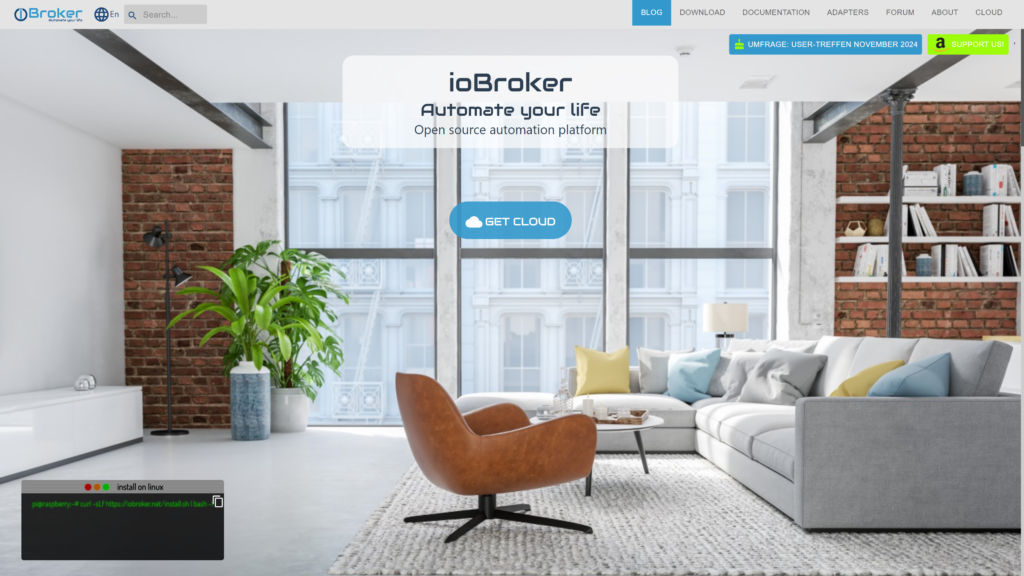
This particular software was designed for the automation industry, automotive industry, smart home industry, laboratory logistics, and escape games.
It allows you to control your smart home, industrial, and commercial automation from your smartphone, platform, or panel.
Examples of areas that you can automate with this software include apartments, hotels, houses, and pipelines.
You can also use it to observe your child, dog, cat, horse, production, and garden pool, and control nearly every smart gadget in your factory or home.
Though a recently launched home automation open-source program, ioBroker has one of the fastest-growing communities.
It already boasts more than 21,000 users. The software runs devices like the NUC, Raspberry Pi, Synology-NAS, Windows Server, and macOS Rechner.
7. Jeedom
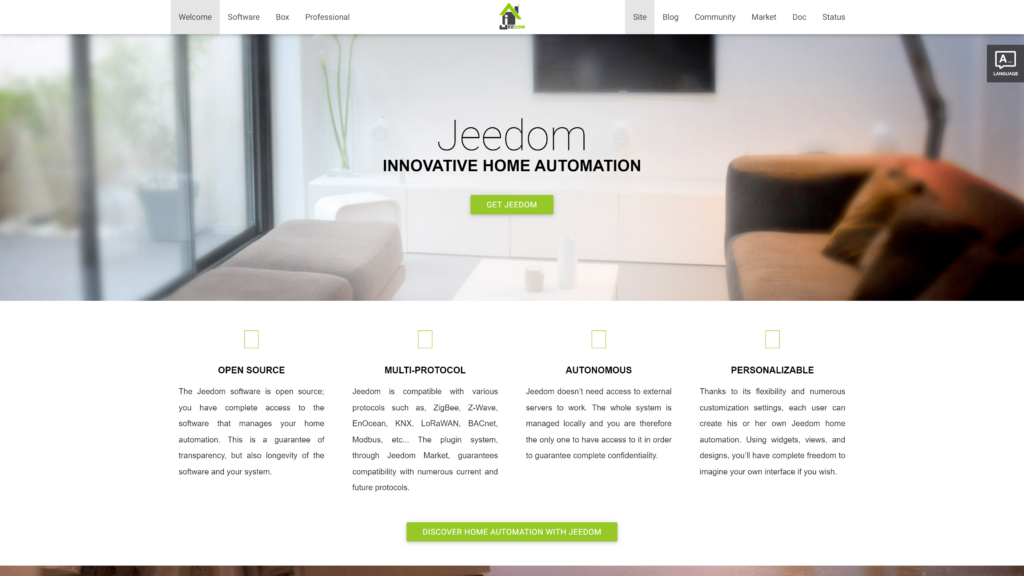
If you are looking for French home automation solutions, then you should consider Jeedom. It is a great option for coordinating your smart home devices.
Its only drawback is that it is limited by language. This solution is predominantly French, meaning that most of the things, including support, are all in French.
While it tried to offer documentation in various languages, including English, it is not so easy to pick up when compared with other open-source home automation solutions like Home Assistant and OpenHAB.
8. Node-Red
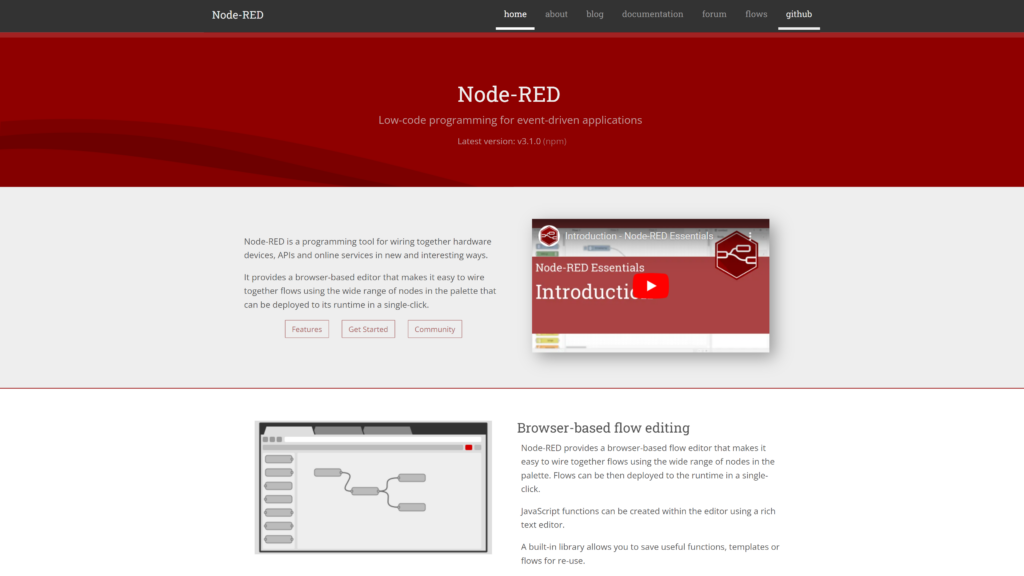
This open-source tool from IBM helps users wire their hardware gadgets, application programming interfaces, and online services.
The good thing about it is that it integrates easily with most home automation software. The way it works is that it provides a browser-based editor to instruct the flows between network nodes.
There is a flow library available for users of the tool. On top of this, makers are allowed to create their own JavaScript functions to coordinate things.
In most cases, Node-Red is set up on Node.js due to its event-driven server. You can also configure it on Rasberry Pi, Android, and Beaglebone.
On top of this, it supports top cloud service providers such as IBM Cloud, Amazon Web Services, and Microsoft Azure.
9. HomeGenie
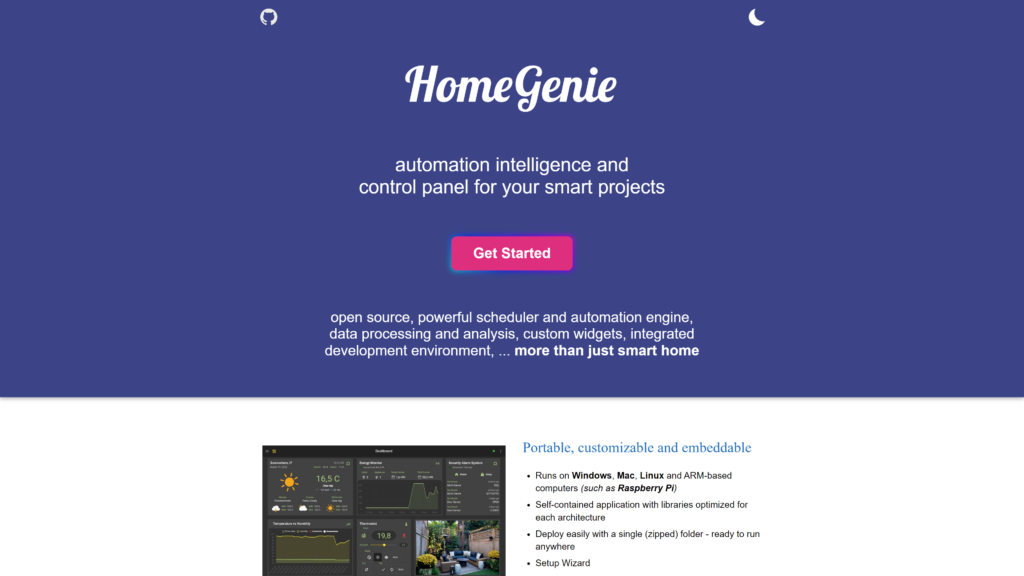
In terms of home automation servers, HomeGenie is one of the most trusted providers. HomeGenie claims to offer the best experience in this area.
With a detailed, web-based dashboard and countable integrations to work with, this open-source platform is an interesting proposition.
The only downside of HomeGenie is that it doesn’t have a united support community. There are no reference places or forums where HomeGenie users can converge to share their experience and knowledge about the software program.
10. AGO Control
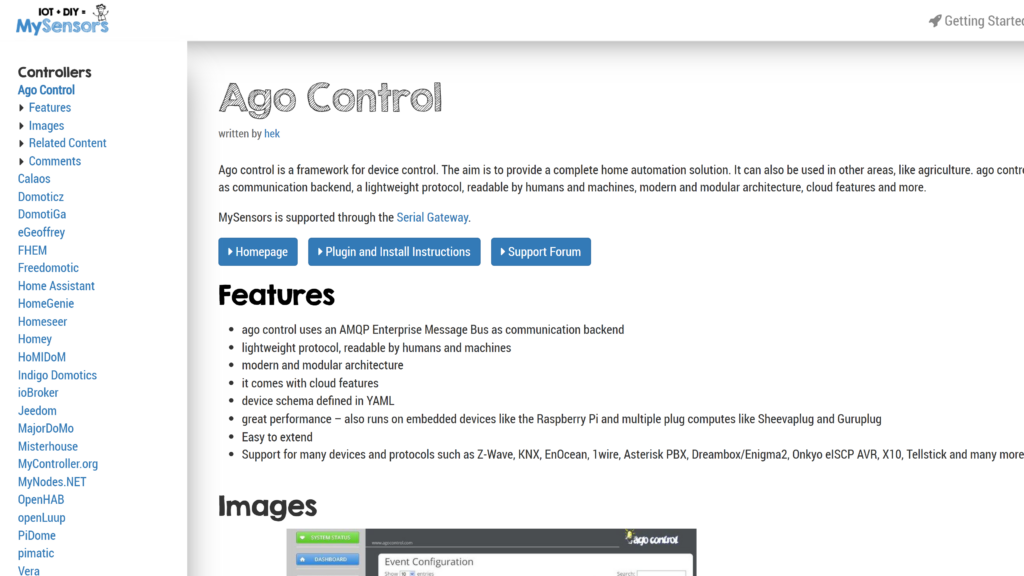
AGO is a simple and clean open-source dashboard that lets you coordinate and automate most of your smart home devices more than any other platform.
Actually, it draws its strength from its simplicity.AGO Control is a framework for smart home automation, so it allows you to bring on board anything you have inside and outside your home.
You are likely to love this tool because of its lightweight protocol that simplifies readability for both machines and humans.
11. FHEM
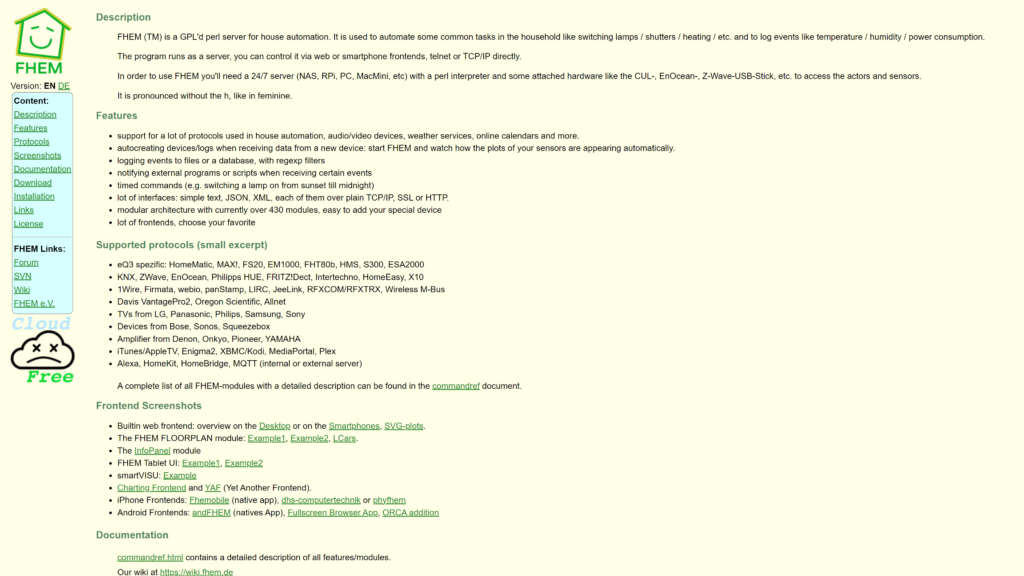
As far as home automation is concerned, FHEM is one of the most respectable open-source tools. It is an open-source Perl server that you can use to automate basic repetitive tasks such as regulating the heating and switching the lights on or off.
Interestingly, most protocols within the home automation space are supported with FHEM. Its documentation is also great but is only useful if you can locate what you are looking for.
The main drawback of this system is its messy interface. Nonetheless, it is a good choice for most home automation enthusiasts.
12. PiDome
PiDome is a great home automation open-source program that monitors and tracks all the systems. This home automation software sends you alerts when the window or door is open or whenever someone tries to enter your home.
Just like most of the software and tools listed in this article, PiDome is compatible with top operating systems such as Solaris, Linux, and Windows.
Besides this, you can download this program onto your smartphone, allowing you to coordinate everything from anywhere in the world.
Closing Remarks
There is no doubt that smart home automation is a powerful technology that can enable you to achieve a lot, but the only challenge is that it is not easy to manage.
Thankfully, with the above home automation open source tools and software can simplify the entire process.
Also read: The 6 Best Home Automation Ideas for an Effortlessly Connected Lifestyle


